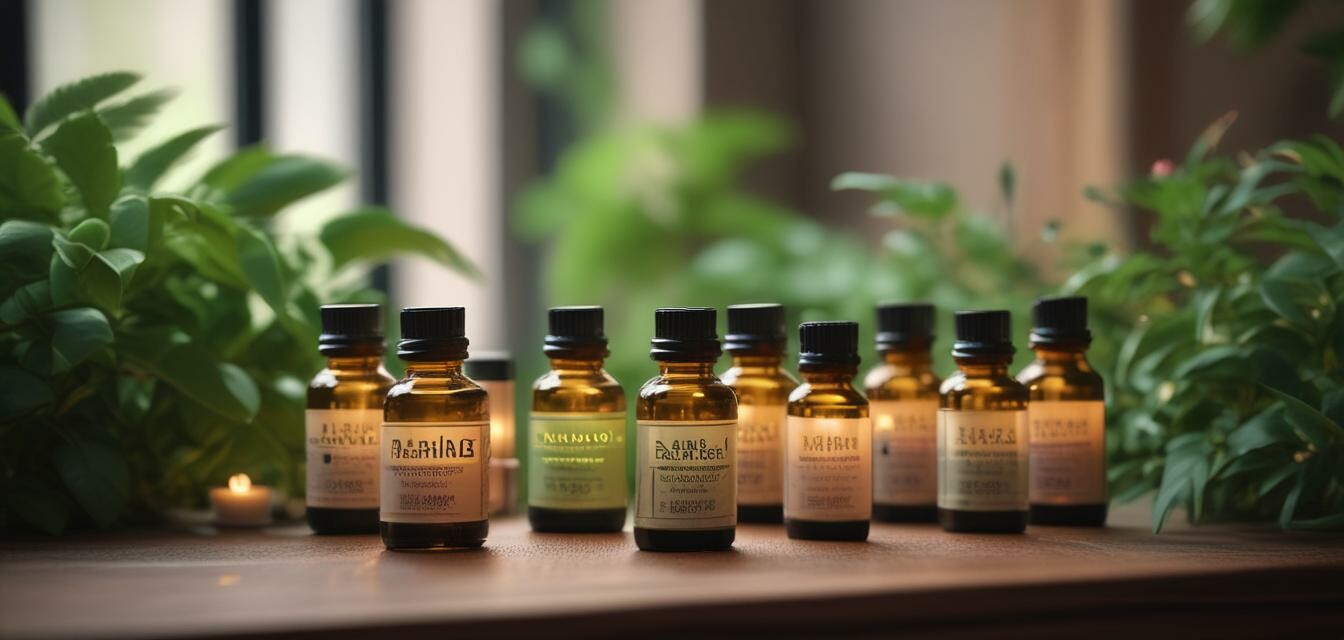
The importance of aromatherapy in recovery
Key takeaways
- Aromatherapy utilizes essential oils to enhance physical and emotional well-being.
- It can aid in relaxation, stress relief, and improved mood.
- Incorporating aromatherapy into recovery routines can provide a holistic approach to wellness.
- Essential oils can be used in various ways, including diffusion, topical application, and bath soaks.
- Understanding different oils and their properties is key to effective use.
Aromatherapy is an ancient practice that leverages the therapeutic properties of essential oils to promote emotional and physical wellness. Whether used in a professional setting or at home, this art of healing provides a multi-faceted approach to recovery processes. In this article, we will explore how incorporating aromatherapy into your wellness toolkit can enhance your recovery journey.
What is aromatherapy?
Aromatherapy involves the use of naturally extracted aromatic oils from plants to promote overall health and well-being. These essential oils are believed to possess various therapeutic properties that can positively influence the mind and body.
Common essential oils used in aromatherapy
| Essential Oil | Possible Benefits |
|---|---|
| Lavender | Calming and relaxation, may help improve sleep quality. |
| Peppermint | Refreshing and invigorating, can promote mental clarity and focus. |
| Eucalyptus | Supports breathing and has soothing properties for muscle tension. |
| Tea Tree | Known for its cleansing properties and may support skin health. |
| Chamomile | Gentle and soothing, often used to ease feelings of stress. |
How aromatherapy assists in recovery
Aromatherapy can play a crucial role in various recovery processes. Here are some ways it may assist in promoting wellness:
- Stress relief: The calming scents of certain essential oils can help alleviate feelings of anxiety and stress, creating a more peaceful environment for recovery.
- Enhanced focus: Oils like peppermint and lemon can invigorate the senses, helping individuals concentrate and stay motivated during their recovery journey.
- Emotional balance: Aromatherapy can aid in emotional healing by facilitating relaxation and allowing individuals to process their feelings more effectively.
- Physical relaxation: Certain oils may assist with muscle relaxation and tension relief, complementing physical recovery methods.
How to use aromatherapy in your daily routine
Incorporating aromatherapy into your daily routine can be simple and enjoyable. Here are some methods to get you started:
- Diffusion: Use a diffuser to disperse essential oils into your living space, filling it with soothing aromas.
- Topical application: Mix essential oils with carrier oils for massage or apply to pulse points for immediate benefits. Always conduct a patch test first.
- Baths: Add a few drops of essential oil to your bath water for a luxurious and relaxing experience.
- Inhalation: Inhale essential oils directly from the bottle or by adding them to a tissue for quick aromatherapy on the go.
Essential oil safety considerations
When using essential oils, it’s essential to prioritize safety:
- Dilution: Always dilute essential oils with a carrier oil before applying it to the skin.
- Allergies: Be cautious of allergies and sensitivities. Conduct a patch test before widespread use.
- Quality: Choose high-quality essential oils from reputable sources to ensure their purity.
- Consultation: If you have health concerns or are pregnant, consult a healthcare professional before using essential oils.
Conclusion
Aromatherapy can be a powerful ally in your recovery journey, supporting both emotional and physical well-being. By integrating essential oils into your daily routine, you create a holistic approach to wellness. Explore different essential oils, understand their properties, and discover how they can enhance your recovery experience. Remember to prioritize safety and enjoy the soothing benefits that aromatherapy brings to your life.
Pros
- Creates a calming environment
- Supports emotional well-being
- Enhances focus and mental clarity
- Offers a holistic approach to recovery
Cons
- Not all oils are suitable for everyone
- Possible allergic reactions
- Quality can vary between brands
For more tips and advice on wellness tools, check out our Wellness Tips category. Additionally, consider exploring our range of Aromatherapy Products for high-quality options. Enhance your recovery with the perfect blend of nature and wellness!
